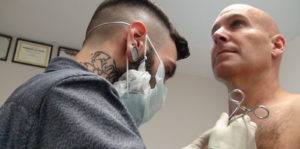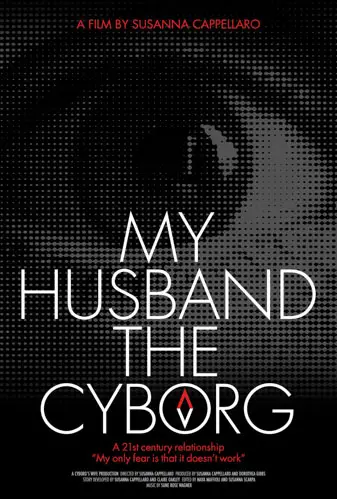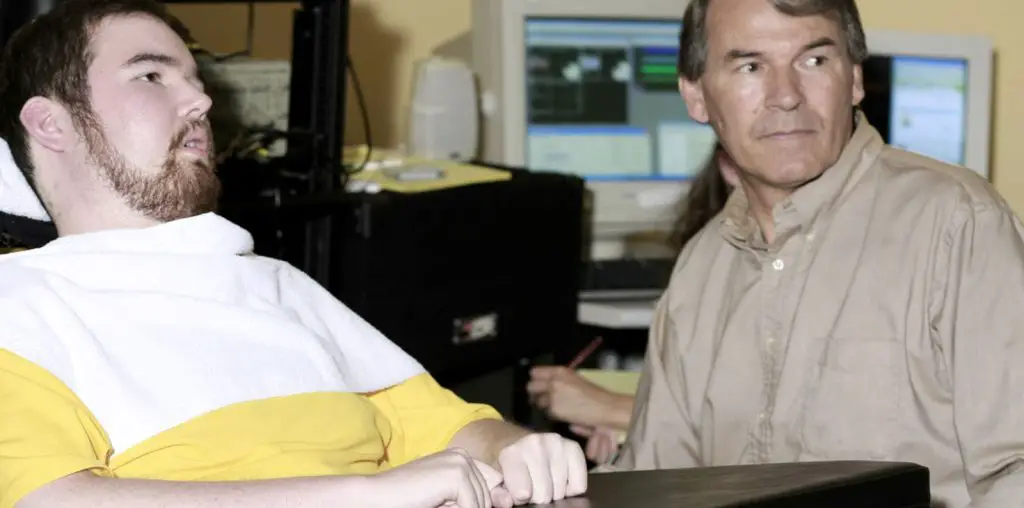
In a world where technology is constantly reshaping how we live and interact, My Husband, the Cyborg offers a compelling look at what happens when that same technology creeps into the most intimate spaces, our relationships. Directed by Susanna Cappellaro, this personal documentary chronicles her marriage to Scott Cohen, one of the first people to implant a device known as NorthSense, a circuit board embedded in his chest that gives him a “sixth sense” of magnetic north. What begins as a curious experiment in transhumanism spirals into a heart-wrenching exploration of obsession, identity, and love.
The film unfolds as an intimate journey, with Cappellaro candidly documenting the effects of this life-altering decision. NorthSense vibrates whenever Cohen faces magnetic north, an oddity the couple initially treats with amusement. But as Cohen grows fixated on his body modification, their relationship fractures. While he experiences a literal transformation, Cappellaro is left questioning whether she still recognizes the man she married.
At its core, My Husband, the Cyborg isn’t about body modification or technological “perfection.” It’s a meditation on how progress can erode the human connections that give life meaning. Instead of delving into the science behind NorthSense or transhumanist philosophy, Cappellaro focuses on the emotional fallout, grounding the narrative in personal stakes. The tension builds not through dramatic confrontations but through quiet, unsettling moments where love gives way to alienation.

“…one of the first people to implant a NorthSense circuit board in his chest…”
What sets the film apart is its raw, unfiltered intimacy. Cappellaro doesn’t shy away from her own discomfort, and the audience bears witness as Cohen drifts further into his obsession. There’s a palpable unease as he embraces his implant, seemingly more engaged with the device than his wife. The pacing is deliberate, allowing each moment to land with emotional weight. We’re not just watching a man alter his body; we’re seeing how an obsession can unravel the fabric of a relationship.
The documentary’s strength lies in its exploration of how technology doesn’t just alter the body. It reshapes identity. Cohen’s journey is both fascinating and unsettling as his pursuit of self-enhancement begins to overshadow his relationship. At one point, Cappellaro remarks that he seems more defined by his implant than by the man she married. This psychological shift is one of the film’s most chilling aspects, raising a haunting question: Can you still love someone when they are no longer who they once were?
Visually, the film leans into its unpolished, diary-like aesthetic, emphasizing vulnerability. Moments of silence speak louder than words. A lingering shot of Cohen staring at his chest in the mirror encapsulates the emotional distance growing between them. These small but powerful visuals reinforce the film’s underlying theme: that unchecked progress can lead not to enlightenment but estrangement.
Yet, My Husband, the Cyborg isn’t a condemnation of technological ambition. Cappellaro doesn’t frame Cohen as a villain or paint herself as a martyr. Instead, she presents the emotional cost with striking honesty, leaving the audience to decide whether Cohen’s transformation is a personal triumph or a tragic loss.
At its core, the film explores the fragile nature of identity, the shifting boundaries of love, and the unforeseen consequences of chasing evolution. As technology continues to blur the line between human and machine, My Husband, the Cyborg forces us to ask: When does self-improvement become self-destruction?

"…When does self-improvement become self-destruction?"


